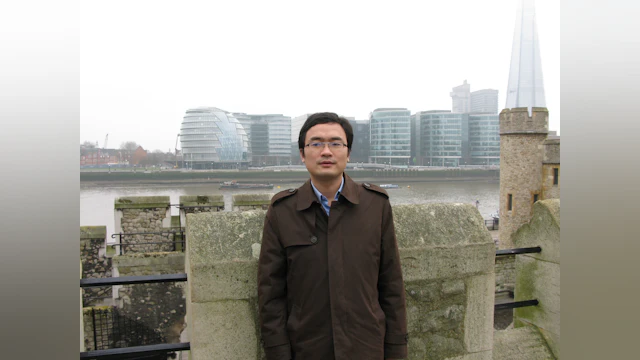BACKGROUND
In China, those at highest risk for suicide are elderly adults over the age of 65 who live in rural areas. As a whole, older adults make up over 10% of the Chinese population.
Due to increased urbanization, it is estimated that each year, about 40% of people who live in rural areas in China relocate to urban areas. Consequently, it has been suggested that for elderly Chinese living in rural areas, being left behind by their younger relatives may be a significant risk factor for suicide in their age group. However, this has not been confirmed in previous research.
To better understand suicide risk in rural Chinese elderly, Dr. Liang Zhou and his team at Guangzhou Medical University conducted a study using an approach called the psychological autopsy. The psychological autopsy is a structured and standardized method of interviewing family and friends of a person who died, and determining factors related to a person’s death based on: physical and mental health factors, historical factors (e.g. a family history of mental health conditions), and social and environmental factors (e.g. stressful life events; access to lethal means).
Learning from this study in China can help us to understand more about what contributes to suicide around the world.
QUESTION
What are the risk factors for suicide in rural Chinese elderly?
THE STUDY
The researchers sought to determine whether being left behind in rural areas by younger relatives increases suicide risk in the elderly, as well as identify related suicide risk factors, by comparing elderly adults who had died by suicide after being “left behind” to living elderly adults who had been left behind. Elderly adults were considered “left behind” if their children lived in a different town for at least 10 months prior to the elderly adult’s death (or the time of the study, for the living elderly adults) and had visited the elderly adults no more than twice during that period.
Using the Chinese death certification system and Center for Disease Control (CDC) reporting, Dr. Liang Zhou and his team identified 242 elderly adults over a one-year period who had died by suicide in one of three Chinese provinces. After the manner of death was confirmed as a suicide for each of these individuals, researchers then identified a living elderly adult who was comparable to the deceased in terms of age, gender, and living location to provide a sample matched on age.
Using the psychological autopsy approach, the researchers interviewed each informant (generally a close relative, and a friend or neighbor), asking questions about their elderly relative or friend. These questions related to the elderly adult’s age, education, marital status, gender, employment status, income, and their access to lethal means.
For the elderly adults who had died by suicide, their informants were asked questions about suicide intent; if the elderly had sought help from a doctor in the month preceding their death; and if so, from what kind of doctor. In all cases, informants were asked questions relating to the elderly adult’s mental health status (i.e. diagnosis of disorder), depressive symptoms and social support in the week prior to their death (or, for the living elderly adults, prior to the interview), and stressful life events in the 12 months prior to death or interview.
RESULTS
Dr. Zhou and his team found that the elderly adults who died by suicide were more likely to be “left behind,” unemployed, and to have lived alone when compared with the living adult sample to whom they were matched. Additionally, those who died by suicide were more likely to have been either divorced, widowed, separated, or never married. The deceased elderly also had significantly less social support, more severe depressive symptoms, and a greater number of stressful life events as compared to the living elderly adults. The most common stressors were had a chronic disease (79%), hospitalization (55%), and death of a spouse in the previous year 32%). Notably, almost 60% of the elderly adults who had died by suicide had been seen by a medical doctor within the month preceding their death.
While more people who died by suicide had been “left behind” than those who were older and alive, the number was small (17% vs. 10% ), suggesting that other factors contributed to the death by suicide. Over half of those who died by suicide met the criteria for the diagnosis of at least one mental health condition, as compared to only five percent of the living elderly adults. Mood disorders, psychotic disorders, and alcohol dependence occurred more frequently in those who had died by suicide. They were also more likely to experience stressful events, have depressed mood and be living alone.
Based on the study, the researchers suggest that being “left behind” may serve as a stress that contributes to suicide in the context of mental and physical health conditions, and a general lack of social support, combined with other life stressors.
TAKEAWAY
- For Chinese elderly who live in rural areas, being “left behind” can be a risk factor for suicide
- Mental and physical health conditions, stressful life events, and lack of social support contribute to suicide among rural Chinese who are elderly
- Since it is typical to see a physician prior to death by suicide, training is needed for medical clinicians who treat the elderly in rural China
- Factors found to contribute to suicide among the elderly in rural China are similar to those found to contribute to suicide among the elderly in the United States

Liang Zhou, M.D., Ph.D.
Guangzhou Medical University
Grant Title: Being Left Behind and Suicide among Rural Chinese Elderly: A Psychological Autopsy Case Control Study
2013 Standard Research Grant
GRANT-RELATED PUBLICATIONS:
Niu, L., Jia, C., Ma, Z., Wang, G., Yu, Z., & Zhou, L. (2018). The validity of proxy-based data on loneliness in suicide research: a case-control psychological autopsy study in rural China. BMC Psychiatry, 18(1), 116. https://doi.org/10.1186/s12888-018-1687-x
Zhou, L., Wang, G., Jia, C., & Ma, Z. (2019). Being left-behind, mental disorder, and elderly suicide in rural China: a case-control psychological autopsy study. Psychological Medicine, 49(3), 458–464. https://doi.org/10.1017/S003329171800106X
Click here to read more about Dr. Zhou's Standard Research Grant.
